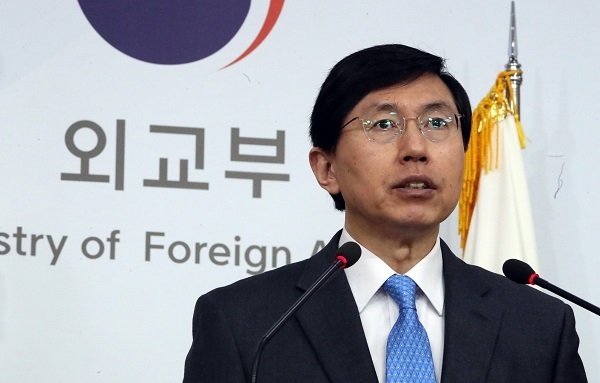Korea says 'forced labor' statues near Japan missions 'not desirable'
By a2017001Published : May 2, 2017 - 16:37
South Korea's foreign ministry on Tuesday expressed its reservations about civic activists' move to erect statues symbolizing Korean victims of forced labor under Japan's colonial rule near its diplomatic missions.
A civic group is pushing to install such statues near the Japanese Embassy in Seoul and its consulate located in the southeastern port city of Busan. Japan raised strong objections and recently asked the Seoul government to take appropriate action.

"It is not desirable to build sculptures near diplomatic missions in view of international courtesy and customs related to their security," Cho June-hyuck, foreign ministry spokesman, told a regular press briefing.
His remark is in line with Seoul's stance on a controversial girl statue erected last year in front of the consulate in Busan that symbolizes Korean women forced into sexual slavery by Japan during World War II. Tokyo has strongly protested the placement of the status and demanded its removal.
South Korea has tried not to get directly involved in the statue issue, saying that it was built by a civic group but underlined the need for it to be relocated to a "proper" site. The approach, however, was viewed by critics as too submissive.
Japan brought in its ambassador to Seoul in protest. The ambassador returned to work in early April after a nearly three-month-long absence.
Last week, Japanese Chief Cabinet Secretary Yoshihide Suga called the civic group's move to install the statue for forced labor a "big problem," saying that Tokyo has expressed a strong objection and called on Seoul to take necessary action through diplomatic channels.
Japan ruled the Korean Peninsula from 1910 to 1945 during which historians say that millions of Koreans were coerced into labor.
They also estimate that up to 200,000 women, mostly from Korea, were forced to work in front-line brothels for Japanese troops during World War II. (Yonhap)





![[KH Explains] No more 'Michael' at Kakao Games](http://res.heraldm.com/phpwas/restmb_idxmake.php?idx=644&simg=/content/image/2024/04/28/20240428050183_0.jpg&u=20240428180321)













